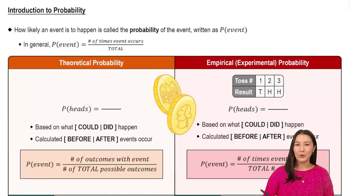In Exercises 7-12, classify the statement as an example of classical probability, empirical probability, or subjective probability. Explain your reasoning.
8. The probability of randomly selecting five cards of the same suit from a standard deck of 52 playing cards is about 0.002.




